Sustainability
People and Planet Are Our Passion
At AQ Compute, every job is a green hire. Our team of experts share the passion and culture of ‘people, planet and profits.’
Everyone on our team understands current climate issues and takes responsibility for learning the ensuing complexities, focusing on solving problems to alleviate cascading environmental impacts for our clients.
AQ Compute’s Sustainability Leadership masters the skills of tradeoffs to maximize data center performance, lower operations costs, and minimize environmental impact to achieve a sustainability-forward standard operating procedure for our data centers. We relentlessly push the innovation envelope to solve humanity’s most significant existential problem.
This is a journey.
UN SDG
“AQ Compute’s sustainability leadership exemplifies data center design, build, scale and operations. We take a systematic and holistic approach to achieving resilience and carbon neutrality for our clients.
The crisis of climate and biodiversity combined with the crisis of social and economic justice are the push and incentive to stay the course of sustainability. According to the IPCC, research has breathed new life into climate protection in utilizing an evidence-based framework and good science.”
Susanna Kass, Member of Climate 50, Top 50 Most Influential Climate Leaders in Data Centers and Cloud, Data Center Advisor, UNSDG-EP

AQ Compute is aligned with the United Nations Sustainable Development goals.
AQ Compute takes a systematic and holistic approach to achieving resilience and energy-efficient operations for data centers and the ICT sector.
The UNSDGs that we are prioritizing are:






UN SDG GOAL #7 – Renewable Energy
AQ Compute takes ownership of making affordable renewable energy for all projects by purchasing renewable energy and ensuring new renewable power is installed for our data centers.
UN SDG GOAL #8 – Decent Work & Economic Growth
Through our membership with Cleanhub, we encourage respect for human rights and continued engagement in Asia to support natural social impact and drive social change. We strive to improve the dignity and living standards of people working in the waste management sector, and we are firmly committed to social justice and environmental protection in Asia.
UN SDG GOAL #9 – Industry, Innovation and Infrastructure
Through our data centers, we support the digitalization of the economy, which is essential for the modernization of other industries and the path to sustainable development.
UN SDG GOAL #12 – Responsible Consumption
We aim to match each MW consumed by our data centers with an additional MW of renewable energy generation.
UN SDG GOAL #13 – Climate Action
AQ Compute delivers a net positive impact by incorporating sustainability practices to protect the environment, promote social benefits to our communities’ citizens, and mitigate the effects of climate change.
UN SDG GOAL #14 – Life Below Water
AQ Compute supports removing and cleaning the massive plastic pollution that the oceans and beaches face.
Aquila Group – Creating sustainable value through essential tangible assets investments
Aquila Group manages one of Europe’s largest renewable energy portfolios and owns Norway’s most extensive small-scale hydropower portfolio.
Sustainability has always been part of Aquila Group’s value system and is integral to its investment strategies, processes, and asset management. Since 2006, Aquila Group has managed its corporate carbon footprint and contributed to the global energy transition by investing in clean energy and sustainable infrastructure and strengthening the world’s infrastructure backbone. Aquila Group focuses on assets that will have a future in a society facing climate change mitigation and adaptation challenges—long-term success is based on compliance with ESG principles.
We benefit from Aquila Group’s long track record in the European clean energy and sustainable infrastructure industry and its broad expertise in establishing and managing long-term PPAs. With this strong background, we can control our renewable energy supply.
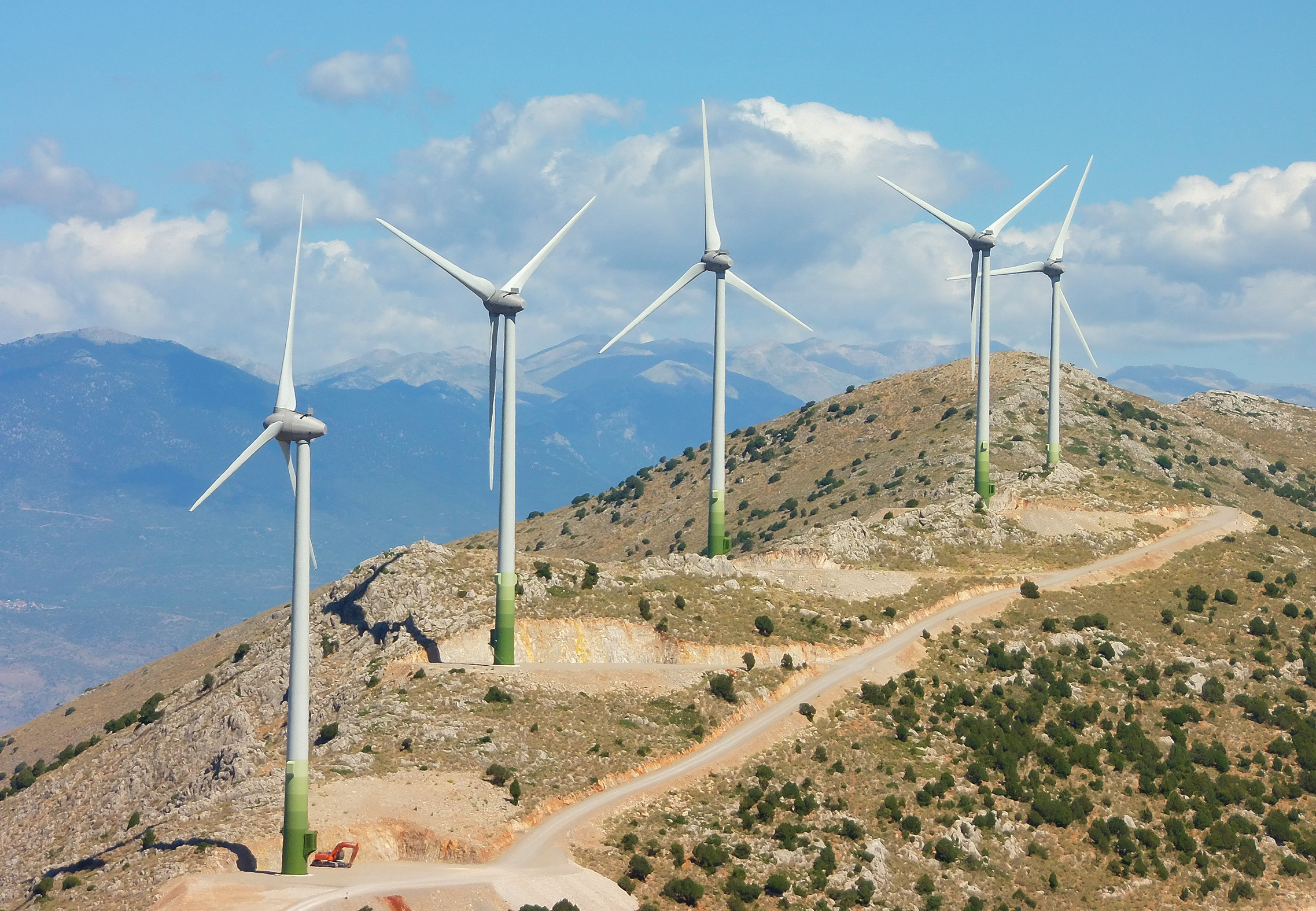
Path to Net Zero
We are conscious of how important it is for our clients to reduce the environmental impact of their activities. We want to support their ESG goals by relying on our products and services. We want to exemplify ESG and be the enablers of change.
Our ESG strategy is based on reaching net zero emissions within the next few years to tackle the main challenges that today’s world faces regarding energy, emissions, water and waste.
These are our ESG pillars:
- Clean Energy
- Low-Footprint Design and Operation
- Circular Value Chain
- Social and Nature Care
- Transparency and Leadership
Clean Energy
At AQ Compute, one of the first actions we must undertake to reach Net Zero emissions is ensuring a clean power supply to our data centers. We integrate data center operations with advancements in renewable energy, utilizing the renewable energy development expertise of our parent company, Aquila Group. This enables us to deliver clean energy to our data centers and clients.
We will offer secure and attractive long-term power purchase agreements (3-5-10+ years) of 100% market-based renewable energy (*subject to clients’ needs) from wind, solar and hydropower and access to Energy Attribute Certificates.
- Colocation of projects: Based on available land, we can colocate renewable energy plants with our data centers, creating direct clean power connections throughout Europe.
- 24/7 hourly matched clean energy: We leverage our energy activities and utility alliances and use large-scale battery storage to achieve this milestone for our clients.
- Grid demand mechanisms: We help data centers participate in managing electricity demand and maintaining grid stability in the short term, which supports a grid powered mainly by renewable energy.
- Heat recover: We involve utilities, industries and communities to help decarbonize the heating sector. Establishing holistic concepts from the very beginning is vital.
Low-Footprint Design and Operations
Beyond industry best practices:
- We align and subscribe to the EU Code of Conduct on Data Center Energy Efficiency, the iMasons Climate Accord, and the Climate Neutral Data Center Pact and embrace their main objectives: PUE<1.3; WUE<0.4 L/kWh; REF>75%.
- We incorporate a third strategic factor into our procurement decisions: environmental footprint. All equipment will be evaluated based on its ecological impact and the hypothetical cost of its later compensation through voluntary carbon credits.
- We build our data centers to achieve the highest sustainable building standards, considering the footprint of the civil works and building materials. We incorporate wooden elements, prefabricated solutions, low-impact concrete and high insulation to reduce energy loss.
- We carefully select high-efficiency equipment to achieve optimal PUE (power usage effectiveness) levels while facilitating the implementation of innovative liquid cooling technologies designed to meet future needs. Our topologies are flexible and adaptable to meet different load configurations and varying temperature requirements. We install advanced cooling systems in specific high-load areas to ensure adequate heat dissipation and management.
- We minimize water consumption as much as possible and aim for a cooling WUE (Water Usage Effectiveness) of zero. To achieve this, we use closed-loop cooling systems and avoid adiabatic cooling.
- We use the excess heat generated by our data centers for our auxiliary rooms and equipment. In addition, we actively promote the use of excess heat by neighboring communities for various purposes. By promoting the external use of excess heat, we contribute to better sustainability and resource efficiency in our surrounding communities.
- We continuously monitor our energy consumption in real time to optimize the performance of our cooling systems according to the precise requirements of installed IT equipment.
Innovation:
We will research, identify, and apply the latest innovative technologies in:
- Cooling: We study the usage of natural refrigerants, look to use natural cooling sources such as underground cooling, and embrace direct cooling technologies to achieve higher densities and temperatures.
- Energy backup and storage: We study H2 fuel cells for backup and prime power, gas turbines with emissions capture, dynamic UPSs and NiZn batteries. We also explore future-oriented technologies employed in other industries that we could incorporate into our data centers.
- Materials: Cross-laminated timber (CLT) is experiencing an incredible evolution, and we envision its future usage in data centers; other building materials with incorporated absorbed carbon are also essential to us.
- Carbon capture: Our research initiatives include examining active removal on-site using the right plants and materials for our façades.
- We use hydrogenated vegetable oil (HVO) for our generator sets and draw up a plan to progressively replace them with cleaner technologies.
- We participate in industry technical initiatives, such as the ones driven by the OCP, to help community-driven innovation.
- We foster collaboration with research institutes and private research and development initiatives to position our projects as the data centers of the future. We are excited about the prospect of implementing “proof of concepts” in our data centers in collaboration with vendors and customers.
Hard-to-Abate Emissions:
- We perform LCAs of our data centers and measure their actual footprint.
- We prioritize third-party certified carbon removal activities.
- We plan to engage in forestry activities.
- We explore artificial ways to remove carbon emissions using biochar or mineralization techniques.
Circular Value Chain
We employ good practices and incentive programs for the lowest carbon, water and materials footprints:
Suppliers:
- We integrate our principles into our tendering process and will select equipment based on its environmental impact throughout its lifecycle.
- We introduce a third strategic factor in our procurement decisions: environmental footprint.
- We establish requirements for our suppliers to quantify the environmental impact of their products and provide detailed EPDs (environmental product declarations). These EPDs must include water and energy consumption, greenhouse gas emissions, material composition, production processes and non-carbon ecological metrics.
- Our requirements are based on recognized environmental standards such as ISO 14025, 14040, 14044 and 14046 to ensure consistency and compliance with international standards.
- Our goal is to create an ecosystem of suppliers who share our commitment to sustainability and actively contribute to the promotion of environmentally-friendly practices.
Clients:
- We are committed to engaging our customers in our green ecosystem, where we promote and share the benefits of efficiency and a low environmental footprint.
- We promote the use of equipment that meets the requirements of Energy Star and the EU Eco-design Directive.
- We favor servers with high energy efficiencies that comply with ISO 30134 guidelines. To drive sustainable practices, we encourage our customers to reduce the presence of idle and “zombie” equipment and minimize gaps in racks to optimize resource utilization.
- In addition, we promote the extended life of servers and advocate for circular phase-out practices to ensure that materials are properly recycled and reintegrated into the production cycle.
- Promoting these initiatives improves our customers’ operations, overall sustainability and efficiency.
Circular Economy:
- We prioritize waste reduction and are committed to using nonscarce materials, such as rare earth metals, responsibly. To achieve this, we strive to maximize the utilization of recycled and recyclable materials, and we employ material passports to ensure traceability and accountability throughout our projects. We aim to minimize diversion rates and promote circularity in all our endeavors.
Transparency and Leadership
Measure
- We measure precisely and transparently.
- We create solid knowledge and demonstrate trustworthiness.
- We define science-based metrics aligned with recognized standards such as ISO 30134, EN 50600, EN 303 470, ISO 14064 and targets aligned with public and private initiatives.
Report
- We are proactive in preparing for compliance with the forthcoming European regulation, affirming that our data centers are sustainable based on the EU Taxonomy. This commitment to sustainability aims to avoid any form of greenwashing and ensures that our data centers are officially recognized as sustainable assets and investments. In addition, we are preparing to comply with the new European Energy Efficiency Directive and related recommendations.
- Our focus is on implementing transparent reporting practices in line with these regulations. As part of our commitment to transparency and accountability, we report on our science-based environmental, social and governance (ESG) key performance indicators (KPIs) at least once a year.
- This report shows how we better achieve our sustainability goals yearly and contribute to a greener future.
We exemplify ESG
Our planet is growing more connected day by day. We are responsible for taking care of it for us and future generations. AQ Compute aims to protect our planet by acting with our commitment to green data centers.
- We strive to be the most sustainable data center operator in Europe.
- We support innovation in data centers.
- We advance and participate in industry sustainability initiatives, such as the iMasons Climate Accord and the technical committees of technical societies.
“At AQ Compute, we focus on delivering best-of-breed clean energy critical infrastructure to our clients while minimizing their ecological footprint throughout the data center lifecycle, making a positive impact through our design, innovation and technological advantages.”
Jaime Comella, Lead Data Center Architect, AQ Compute


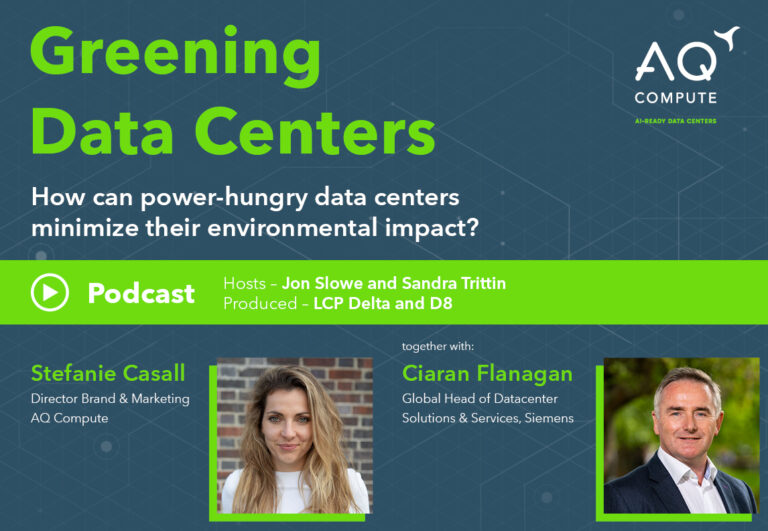
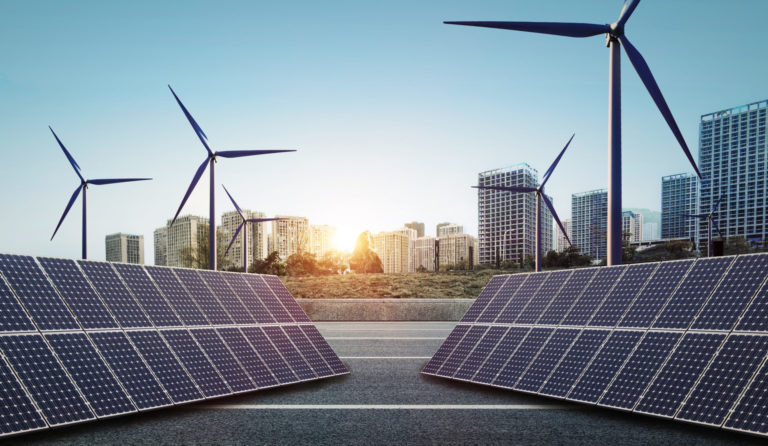

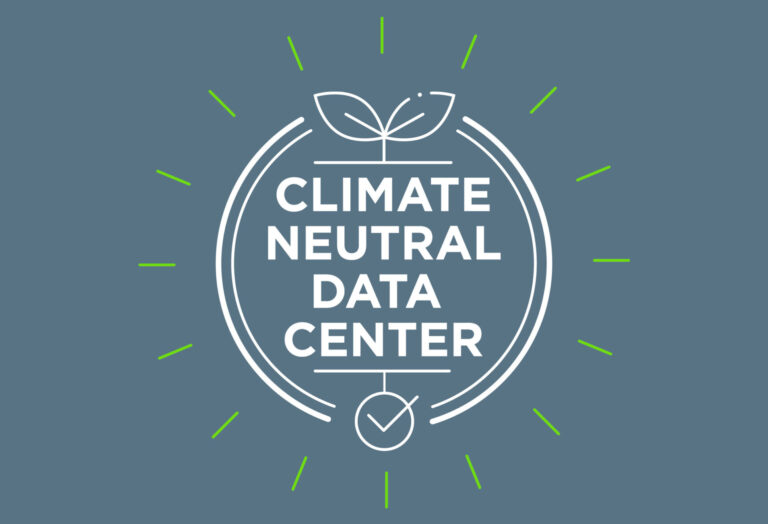


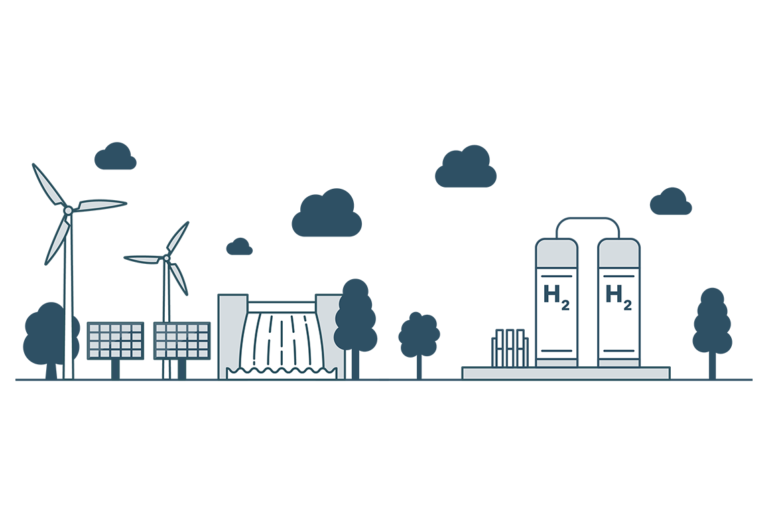

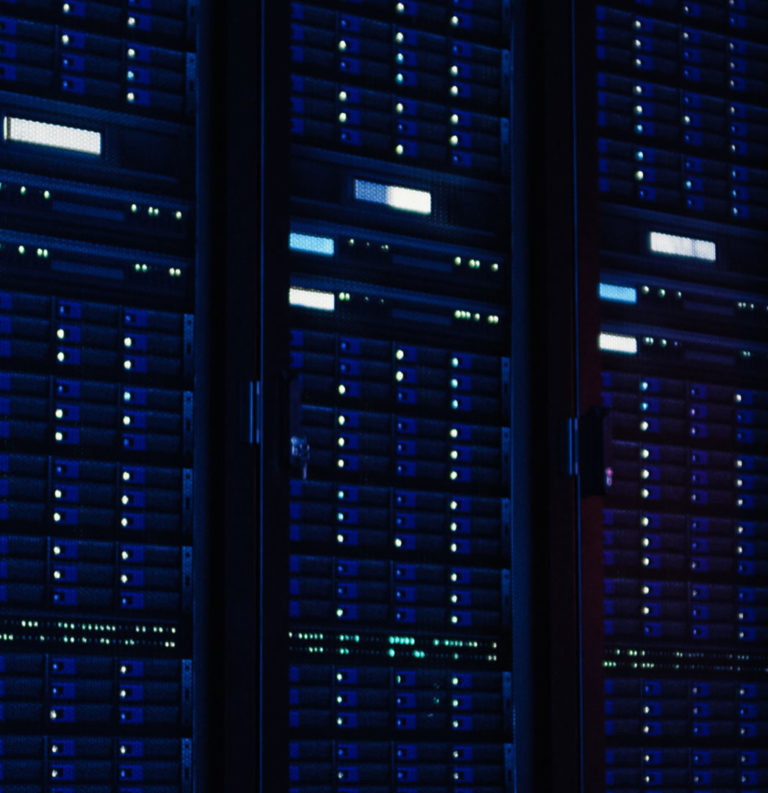

Social and Nature care